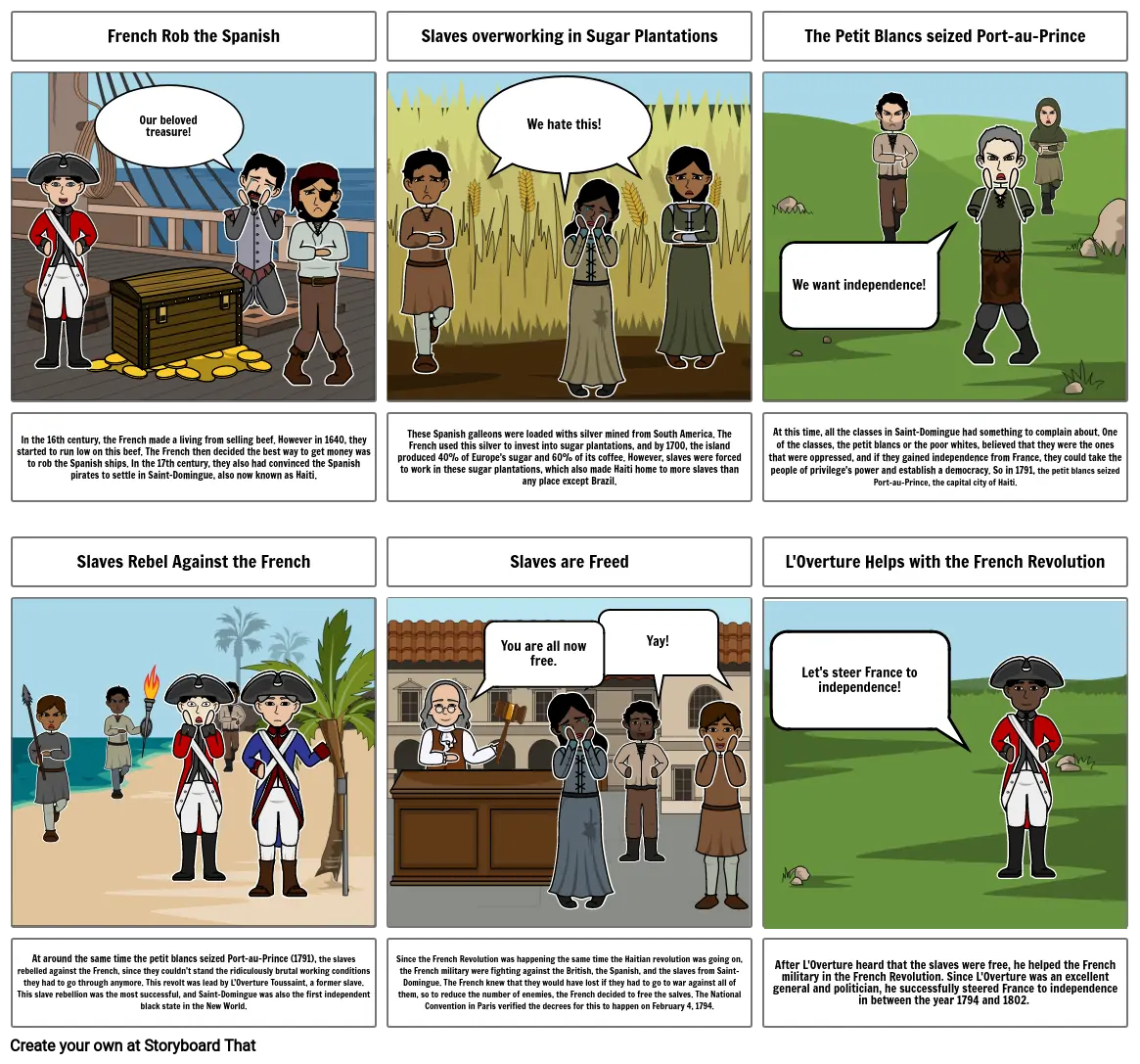Unknown Story

Text z Príbehu
- French Rob the Spanish
- Our beloved treasure!
- Slaves overworking in Sugar Plantations
- We hate this!
- The Petit Blancs seized Port-au-Prince
- We want independence!
- In the 16th century, the French made a living from selling beef. However in 1640, they started to run low on this beef. The French then decided the best way to get money was to rob the Spanish ships. In the 17th century, they also had convinced the Spanish pirates to settle in Saint-Domingue, also now known as Haiti.
- Slaves Rebel Against the French
- These Spanish galleons were loaded withs silver mined from South America. The French used this silver to invest into sugar plantations, and by 1700, the island produced 40% of Europe's sugar and 60% of its coffee. However, slaves were forced to work in these sugar plantations, which also made Haiti home to more slaves than any place except Brazil.
- Slaves are Freed
- You are all now free.
- Yay!
- At this time, all the classes in Saint-Domingue had something to complain about. One of the classes, the petit blancs or the poor whites, believed that they were the ones that were oppressed, and if they gained independence from France, they could take the people of privilege's power and establish a democracy. So in 1791, the petit blancs seized Port-au-Prince, the capital city of Haiti.
- L'Overture Helps with the French Revolution
- Let's steer France to independence!
- At around the same time the petit blancs seized Port-au-Prince (1791), the slaves rebelled against the French, since they couldn't stand the ridiculously brutal working conditions they had to go through anymore. This revolt was lead by L'Overture Toussaint, a former slave. This slave rebellion was the most successful, and Saint-Domingue was also the first independent black state in the New World.
- Since the French Revolution was happening the same time the Haitian revolution was going on, the French military were fighting against the British, the Spanish, and the slaves from Saint-Domingue. The French knew that they would have lost if they had to go to war against all of them, so to reduce the number of enemies, the French decided to free the salves. The National Convention in Paris verified the decrees for this to happen on February 4, 1794.
- After L'Overture heard that the slaves were free, he helped the French military in the French Revolution. Since L'Overture was an excellent general and politician, he successfully steered France to independence in between the year 1794 and 1802.
Bolo vytvorených viac ako 30 miliónov storyboardov

